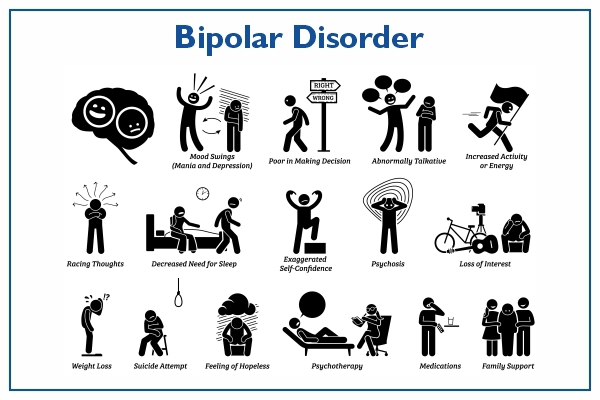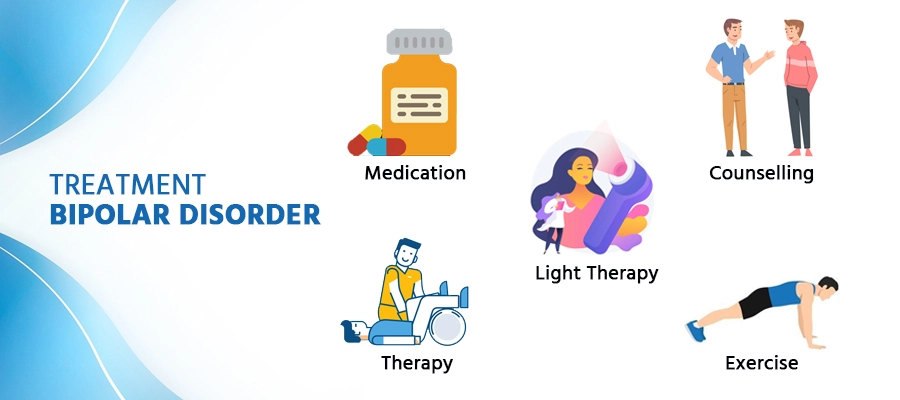Bipolar Disorder : Overview
Bipolar disorder is also known as manic depression which is a kind of
mental health illness that involves high emotional feelings (mania or hypomania) and lows
(depression).
One may feel extremely sad or hopeless when one is depressed, and may lose interest or pleasure
in most activities. Sometimes also feel ecstatic, full of energy, or abnormally irritable when
mood switches to mania or hypomania (a milder form of mania). Sleep, energy, activity, judgment,
conduct, and the ability to think clearly can all be affected by mood fluctuations.
Mood swings can happen once a year or several times a year. While the majority of people will have some emotional symptoms in between episodes. Here you can find all the types of Bipolar disorders, symptoms, causes, risk factors, diagnosis and treatments in detail..


